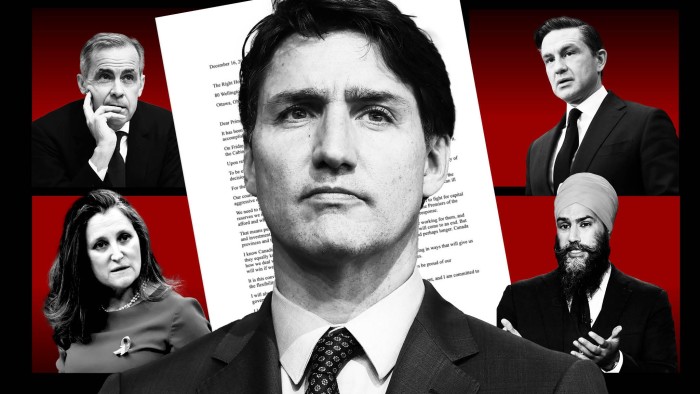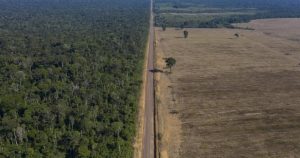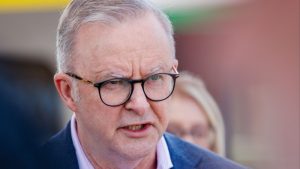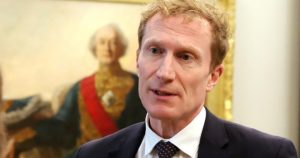Time is running out for Canada’s Justin Trudeau

At his peak, Canada’s Prime Minister Justin Trudeau was a political wunderkind who rode a wave of domestic and global popularity as a charismatic leader who hugged rock stars and welcomed refugees.
Now, after nearly a decade in power, his popularity has tanked and Donald Trump is mocking him as “Governor” of America’s 51st state and threatening to rip up a free trade agreement crucial to Canada’s economy.
“Fewer than one in five Canadians now think the country is headed in the right direction,” said David Coletto, chief executive of Abacus Data, a pollster. Abacus said only 19 per cent of Canadians want Trudeau to remain as leader.
Voters could get a chance to remove him from power early next year. Jagmeet Singh, the leader of Trudeau’s parliamentary coalition partner, the New Democratic party, on Friday urged the prime minister to resign and said he would call for a vote of no confidence in his government in January.
“The NDP will vote to bring this government down, and give Canadians a chance to vote for a government who will work for them,” Singh posted on X.
In tandem with the resignation last week of finance minister Chrystia Freeland, once an ally of Trudeau, Singh’s bombshell capped an annus horribilis for Canada’s leader.
Five ministers have stepped down over the past 12 months, his Liberal party has lost three safe seats in by-elections and his minority government partner has withdrawn its support.

Meanwhile, Canadian unemployment stands at 7 per cent, the cost of living and housing have soared — despite inflation dropping closer to the central bank’s 2 per cent target — and there is a public backlash over an immigration policy designed to kick start the economy.
Gerald Butts, Trudeau’s principal secretary from 2015 to 2019, said high inflation — the bane of many governments since the pandemic — underlies the Liberal government’s crisis.
“It doesn’t matter if you’re a Finnish socialist, Bolsonaro’s party in Brazil or the UK Tories, a Democrat in the US, you can’t buck the trend,” said Butts, who is now vice-chair at Eurasia Group.
Canada’s political turmoil has come to a head just as Trump prepares to re-enter the White House, bringing fresh uncertainty to relations between trading partners that share the longest border in the world.
Last month, Trump threatened to impose tariffs of 25 per cent on all imports from Canada and Mexico, accusing the countries of permitting illegal migration and drug trafficking.
The threat sparked panic in Canada, which ships almost 80 per cent of its exports to the US and has long been among Washington’s closest allies. Trudeau rushed to Mar-a-Lago to dine with Trump, although the move did nothing to halt the president-elect’s mockery of Canada or Trudeau.
Trump’s supporters describe Trudeau as the president-elect’s antithesis — and are now joining in the attacks. On Wednesday the Trump-backing billionaire hedge fund manager Bill Ackman posted that Canada’s populist opposition leader, Pierre Poilievre, should be the next prime minister, “the sooner the better”.
“He seems great,” Trump’s billionaire adviser Elon Musk said of Poilievre on X this week, adding his support. Musk, who emigrated to Canada at the age of 18 and has a Canadian mother, recently described Trudeau as an “insufferable tool”.
But the more hurtful blow came from closer to home.
In her scathing resignation letter this week Freeland — the second consecutive finance minister to quit Trudeau’s cabinet — pointedly referred to the government’s “costly political gimmicks” and said Canada needed to keep its “fiscal powder dry” ahead of a potential tariff war with the US.
The “gimmicks” was a reference to Trudeau’s plan for a brief sales-tax holiday and to pay a C$250 (US$175) cheque to Canadians — moves attacked by opponents as naked, and costly, efforts to win back popular favour.
Robert Asselin, a former senior official at the finance ministry, said the social programmes would only be sustainable if the economy was growing.
“Trudeau will sometimes refuse to focus on the imperatives of the moment, the economy and fiscal discipline, but in doing so jeopardising the very things he cares about,” he said.

A ‘Trudeau Tracker’ from the non-profit Angus Reid Institute think-tank, shows the prime minister’s disapproval rating sitting at 68 per cent, up from 44 per cent in April 2020.
But a leader who has triumphed in three national elections has brushed aside calls to step aside from the party’s leadership before the next national vote, due by October 2025.
At a Liberal Christmas function on Tuesday night Trudeau joked that “like most families, sometimes we have fights around the holidays”.
Trudeau on Friday reshuffled his cabinet, but gave no indication that he would quit, or recall parliament as opposition parties have demanded. A senior official told the Canadian Broadcasting Corporation that the prime minister was still “reflecting” on his position. His office did not respond to a request for comment.
“There’s a lot of people inside the government who are also asking what’s going on. We just don’t know or understand what’s going on,” a senior government adviser told the Financial Times.
Semra Sevi, a political-science professor at the University of Toronto, said that while there was no formal process to force out Trudeau, his prospects of holding on to his party were grim.
“Without a leadership change, it’s hard to see how this government can survive much longer, certainly not until the next federal election,” she said.
One potential successor to Trudeau, Mark Carney, the former head of the Bank of England and Bank of Canada, has been ruled out by Dominic LeBlanc, Freeland’s replacement as finance minister.
“Carney is not an option . . . that discussion has concluded,” he said.
The likelier successor appears to be Poilievre, whose Conservatives now hold a 25-point lead over the Liberals and has demanded Trudeau call a snap election.
“All this chaos and division, all these weaknesses are emerging,” he said, emphasising the need for unity as a trade war looms with the US.
Trudeau may be left with little choice, if Singh comes good on his plan to bring down the Liberal government.
The shift in fortunes for a Canadian leader who once dazzled international audiences and was seen as a paragon of western liberal values is stark.
Butts said: “With all tragic heroes, it’s the personal qualities that serve them well on the way up, that serve them poorly on the way down.”
#Time #running #Canadas #Justin #Trudeau




